No place for bitcoin in Brookfield's 'wealth of things': Bruce Flatt
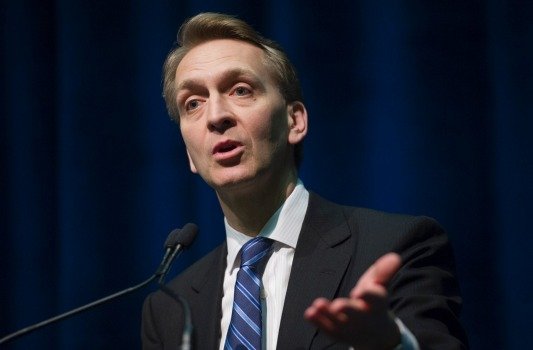

For once Bruce Flatt is struggling. The softly spoken 51-year-old billionaire who runs Canada's global asset manager Brookfield Asset Management currently speaks for $US285 billion ($370 billion) of "real" assets. And he is trying to explain why bitcoin will never join his "wealth of things".
"What it is? I don't know," Flatt assessed. "As far as we can tell, it has no intrinsic value. There isn't anything in it. There is nothing it will do to create wealth. Therefore it is not an asset for us. Whether some others think it is an asset, I don't know. It is just not, not for us. And I would say good luck to all the people that do invest in it. We wouldn't."
In Flatt's February newsletter to Brookfield shareholders, the contrarian investor listed "bitcoin mania" and the recent $US500 million sale of an Italian renaissance painting as two topical triggers for a new investment prudence.
"Our definition of an asset is something that generates cash or has the ability to generate cash. Bitcoin does not generate cash and it has no ability to ever generate cash. Therefore it isn't an asset.
Read more: http://www.afr.com/business/no-place-for-bitcoin-in-brookfields-wealth-of-things-bruce-flatt-20180321-h0xse9#ixzz5AOahnGCV
Follow us: @FinancialReview on Twitter | financialreview on Facebook
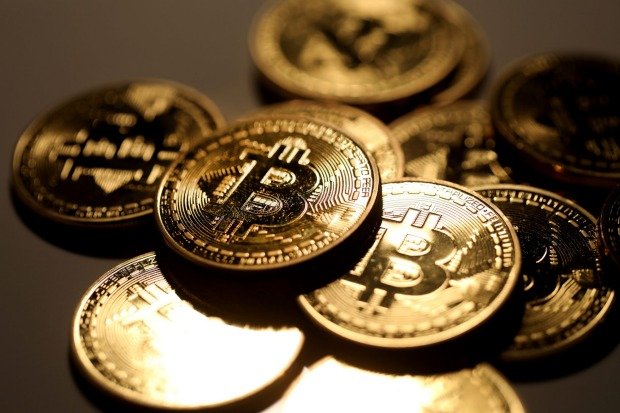
"As to the technical things that go into bitcoin mining, I just don't have an answer for it."
Flatt also offered to shareholders two other twinned clarions that announced the need for circumspection, global equity and bond markets.
Brookfield's man noted that stock market indices had hit all-time highs having averaged 20 per cent compound growth over five years and that government bonds remained historically expensive while corporate and high-yield spreads are at historic lows.
"Look, I do not want to leave you with the impression that the market is going to turn. We don't see anything in particular that might curtail economic expansion. What we are saying is that there are times when you should be aggressive and times when you should be conservative. And now is not the time to be aggressive," Flatt told The Australian Financial Review on Wednesday.
"All we are saying to our shareholders is, 'look, we have had a great ride, we should be more conservative today than we were in, say, 2009-10'. Back then we said that anything we could prudently invest, we are investing because it is the time because things are cheap.
Read more: http://www.afr.com/business/no-place-for-bitcoin-in-brookfields-wealth-of-things-bruce-flatt-20180321-h0xse9#ixzz5AOahnGCV
Follow us: @FinancialReview on Twitter | financialreview on Facebook
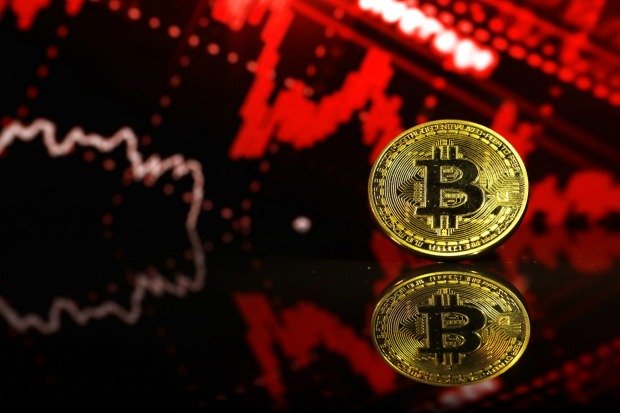
"Today there are things out there that are inexpensive to buy because they always are. But, on balance, if you had a theme, things are not inexpensive, therefore we should be a little more conservative. We should keep cash, be a little more conservative with our funds.
"Many people don't have that attitude. But we would rather just be conservative as you get through the cycle. And you never know until it ends. You never actually know what is going to happen. There are times when it just pays to be a little bit more conservative. That time is now."
The uncertainty of Trump
Just for the record, Flatt seems genuinely unconcerned about Donald Trump and the gathering uncertainties of his presidency that now include a trade war that seems aimed at hurting Brookfield's birthplace of Canada above all.
Read more: http://www.afr.com/business/no-place-for-bitcoin-in-brookfields-wealth-of-things-bruce-flatt-20180321-h0xse9#ixzz5AOb7r4Wh
Follow us: @FinancialReview on Twitter | financialreview on Facebook
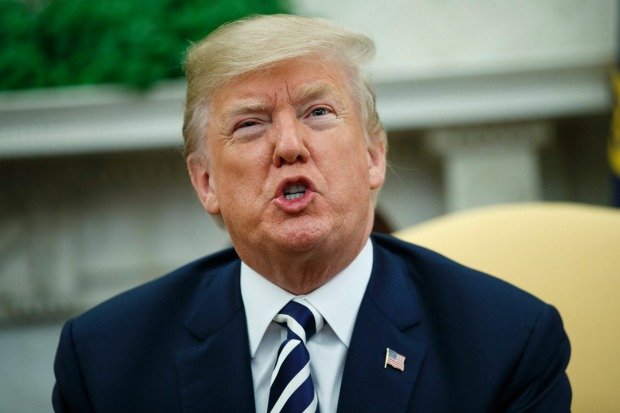
"I am not a macro-economist so I can't give you a valid opinion [on the economic risk of a trade war]," Flatt said.
"What I can tell you is that the United States is doing really, really well today. It has been for years. It continues to get better. Unemployment is low, business is strong. All our companies are doing excellently. The US is one of the greatest, most liquid investment markets on the planet and none of this stuff in the short-term will matter in the fullness of time."
The embrace of a more defensive investment setting through 2017 saw Brookfield gather more cash than it spent. It harvested $US20 billion from asset sales and is presently sitting on a record level of liquidity with $US25 billion ready to deploy.
"We will sell a lot this year, too," Flatt predicted.
Read more: http://www.afr.com/business/no-place-for-bitcoin-in-brookfields-wealth-of-things-bruce-flatt-20180321-h0xse9#ixzz5AObB2z12
Follow us: @FinancialReview on Twitter | financialreview on Facebook
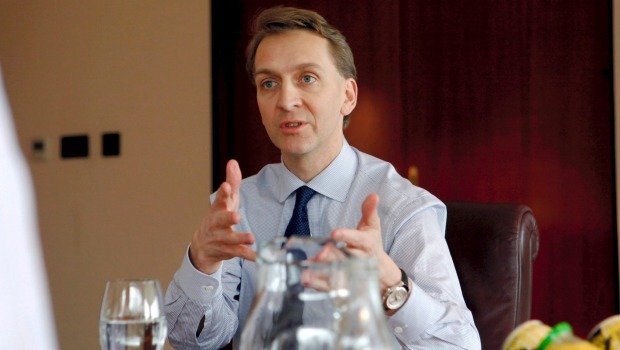
At the same time though, we should expect Brookfield to continue the opportunistic predation that was also the mark of 2017.
Through various funds Brookfield threw $US8 billion at acquiring two power businesses out of the SunEdison bankruptcy and a further $US10 billion at assets acquired from stressed owners in Brazil and India.
Living opportunistically
And the year of living opportunistically closed with a deal forged over two weeks of the Christmas-New Year break that saw Brookfield acquire Westinghouse Electric Company out of bankruptcy for $US4.6 billion.
Read more: http://www.afr.com/business/no-place-for-bitcoin-in-brookfields-wealth-of-things-bruce-flatt-20180321-h0xse9#ixzz5AObEsn7V
Follow us: @FinancialReview on Twitter | financialreview on Facebook

The background to a deal that introduces Brookfield to the nuclear power business is classic Flatt. Over 25 years he has consistently generated fabulous wealth by picking up assets from owners under stress.
The problems at Westinghouse started when its new owner, Toshiba, decided that a power services business should get into building nuclear power plants. Disastrously, it committed the famed brand to fixed-price contracts to build two nuclear plants.
The builds went badly, running $US7 billion over-budget. Toshiba put the business under. Brookfield paid $US4.6 billion to buy it. All of which went to the only two creditors, the utilities owed finished power stations. And Toshiba earned nothing from the sale of what had been $US5 billion investment in US growth.
"Not many other people had our combination of $US5 billion in accessible cash, an informed view of the future income stream [courtesy of its own power business] and the skills to buy a business out of bankruptcy.
"I always say strategy should be rigid and execution should be very flexible. You have to know where you want to go but you have to know that there are a lot of ways to get there."
Developing wealth others don't see
Melbourne seemed an odd place to punctuate a travel itinerary that delivered Flatt to Shanghai from his home base in New York. But, for reasons of his own, Flatt met the Financial Review at The Pullman on the Park, the MCG-side hotel of some Melbourne legend that Brookfield acquired as a by-product of a deal whose primary targets were in Sydney.
According to Flatt, the hotel stands as a coincidental expression of Brookfield's ability to generate wealth that others either don't see or cannot deploy patience and capital enough to extract. While refreshing what was a weary hotel, Brookfield filled surrounding vacant land with apartments that were sold very profitably. And now the pub itself is on the market.
Flatt rates this capacity to identify and patiently realise the unrealised potential of real assets is one of Brookfield's three core competitive advantages. The others are massive financial scale and an ability to combine global reach with discreet and deep, local market knowledge.
That Flatt dashed north to China immediately after our meeting is further tribute to this alliance of skills. Brookfield opened an office in Shanghai three years ago under the direction of Stewart Upson. On Thursday afternoon Flatt and Upson closed their first large-scale deal, a joint venture with China's biggest industrial property business, Global Logistics Properties.
GLP owns 33 million square metres of industrial property. The plan developed by Upson, who is now the head of Brookfield's Asia Pacific business, is to cover about 1 million square metres of GLP rooftops on China's east coast with solar panels over the next five years. Those panels will initially generate up to 300MW of power and the longer plan is to lift that output to more than 1000MW by inviting third-party property owners to the solar panel party. The power that will be sold on long-dated, fixed-term contracts to commercial customers or directly into China's east coast grids.
The longer term aim is to migrate this business model around power-hungry industrial Asia.
Upson's pioneering zeal has apparently not been sated by success in Shanghai. The Sydney-based New Zealander's responsibilities now cross the Pacific to San Francisco where he is steering Brookfield's first sustained tilt at the venture capital game.
Brookfield has seeded its experiment in venture capital with $US200 million of its own equity and Upson reckons to be days away from his first deal.
Upson said that, like so many others, Brookfield had maintained a weather eye on the market-disrupting power of new technology. "But we were looking at it in a defensive mindset, as a way of working out what we needed to watch out for. What we did last year was turn that around and say, 'hold on, we have $US280 billion of real assets all over the globe, these new business ventures, new technologies are interacting with us.
"We are investing off the balance sheet at the moment to prove our thesis. We are confident of it but we are not going to use other people's money until we prove it up," Upson said. "It is exciting and it has the added benefit of giving us a first-hand, front-row seat at those trends that are going to affect our business."
Share via Email
Share on Google Plus
Post on facebook wall
Share on twitter
Post to Linkedin
Share on Reddit
Read more: http://www.afr.com/business/no-place-for-bitcoin-in-brookfields-wealth-of-things-bruce-flatt-20180321-h0xse9#ixzz5AObJ8RCb
Follow us: @FinancialReview on Twitter | financialreview on Facebook